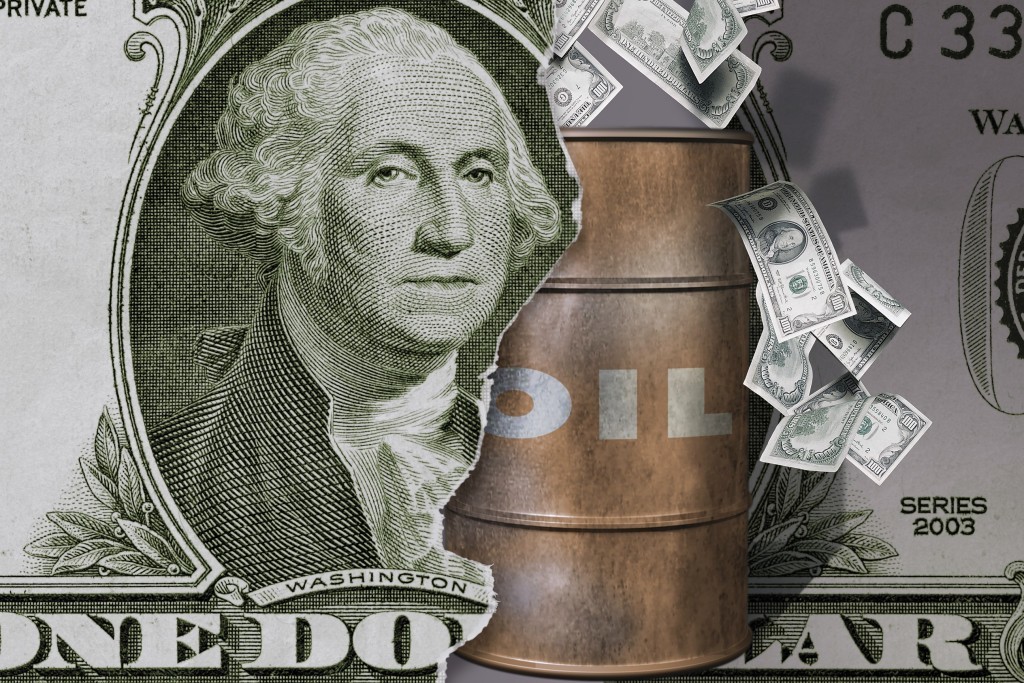
Oil advanced after OPEC’s president said the group would hold informal talks in Algiers next month and predicted the current bear market would be short lived.
Futures climbed as much as 3.3 percent in New York. Members of the Organization of Petroleum Exporting Countries are in “constant deliberations” on stabilizing the market and oil prices are expected to rise in the latter part of 2016, according to a statement on OPEC’s website attributed to Mohammed bin Saleh Al-Sada, Qatar’s energy and industry minister and the group’s current president.
“This is a very formal announcement to an informal meeting and that has bullish implications,” said Jason Schenker, president of Prestige Economics LLC in Austin, Texas. “The statement said OPEC expects the market to be balanced before long, and that the group believes the drop in prices is temporary.”
Oil is fluctuating after tumbling more than 20 percent into a bear market last week. U.S. drilling is expanding as crude supplies continue to rise, keeping stockpiles more than 100 million barrels above the five-year average. OPEC members always intended to discuss the market when they gather for the International Energy Forum next month, but there are no plans to renew the failed push for an output freeze, according to two delegates from the group.
West Texas Intermediate for September delivery increased $1.25, or 3 percent, to $43.05 a barrel at 11:47 a.m. on the New York Mercantile Exchange. The contract touched $43.16, the highest intraday price since July 27. Total volume traded was 5.6 percent above the 100-day average.
Brent for October settlement advanced $1.07, or 2.4 percent, to $45.34 a barrel on the London-based ICE Futures Europe exchange. The global benchmark traded at a $1.61 premium to WTI for October delivery.
For a story on hedge fund positioning on oil, click here.
Commodities also climbed on rising optimism that the U.S. economy and central-bank stimulus will power global growth. American shares fluctuated near all-time highs.
Russia doesn’t see a need to re-engage in freeze talks, Energy Minister Alexander Novak said Monday. Russia’s talks earlier this year with OPEC members about capping production contributed to the rebound in prices from a 12-year low, although the deal ultimately failed in April after Saudi Arabia refused to back the accord because Iran wouldn’t join.
“The mere mention of the word freeze has people thinking that the market has gone low enough for the time being,” said Michael Lynch, president of Strategic Energy & Economic Research in Winchester, Massachusetts. “People were looking for a reason to buy into the market.”
U.S. drillers added seven rigs during the week ended Aug. 5, Baker Hughes Inc. said Friday. The count is the highest since March and has climbed for six weeks, the longest stretch in a year. American crude stockpiles increased for a second week to 522.5 million barrels through July 29, keeping supplies close to April’s record of 543 million.
Recommended for you
